Lenny Abrahamson: Marketing 'The Little Stranger' as a horror 'damaged' it in America (exclusive)
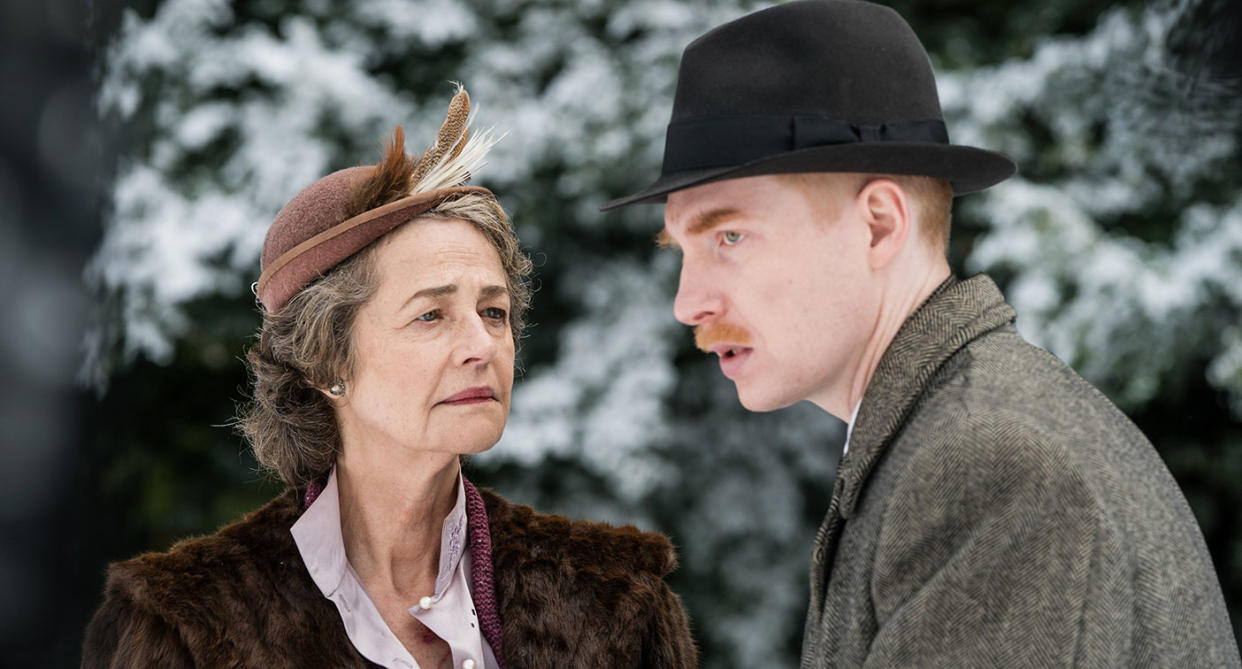
This week sees the UK release of The Little Stranger, the latest film from Lenny Abrahamson.
The acclaimed Irish director’s last picture Room was nominated for four Oscars including Best Picture and Best Actress for Brie Larson (which she won), so his new film – a period spook story, starring Domhnall Gleeson and Ruth Wilson, adapted from the hit Sarah Waters novel – seemed, to many, a left field choice.
Speaking to Yahoo, Abrahamson says he chose the project over another prestige picture “because it was the decision not to take”, but admits the genre trappings caused problems with marketing the film, particularly in America, where it stalled at the box office on Labor Day weekend, taking just over $700,000 (£539,000) from a limited release.
The 51-year-old director, who also made the superb Frank and What Richard Did, says trailers that sold the film as a more conventional horror movie “damaged” the film’s prospects at the US box office.
“I didn’t think they should go that way,” Abrahamson tells Yahoo Movies UK.
“I think if you look at the tradition of really good gothic literature, if by horror, that’s what people meant, then I think it’s a label that you could wear proudly for [The Little Stranger]. But I think, these days, if you say horror, what you mean is something like The Conjuring.
“And if you go into this film expecting The Conjuring, you’ll go ‘hang on a second, that was a bad version of that kind of film. It wasn’t scary enough.’ I think here they’ve been careful to avoid that [here], and I think that is really useful. I think there’s all sorts to talk about in terms of the States release but the biggest thing was that decision.
“I think it did damage it. And I think, probably, the distributor would agree with you over there.”
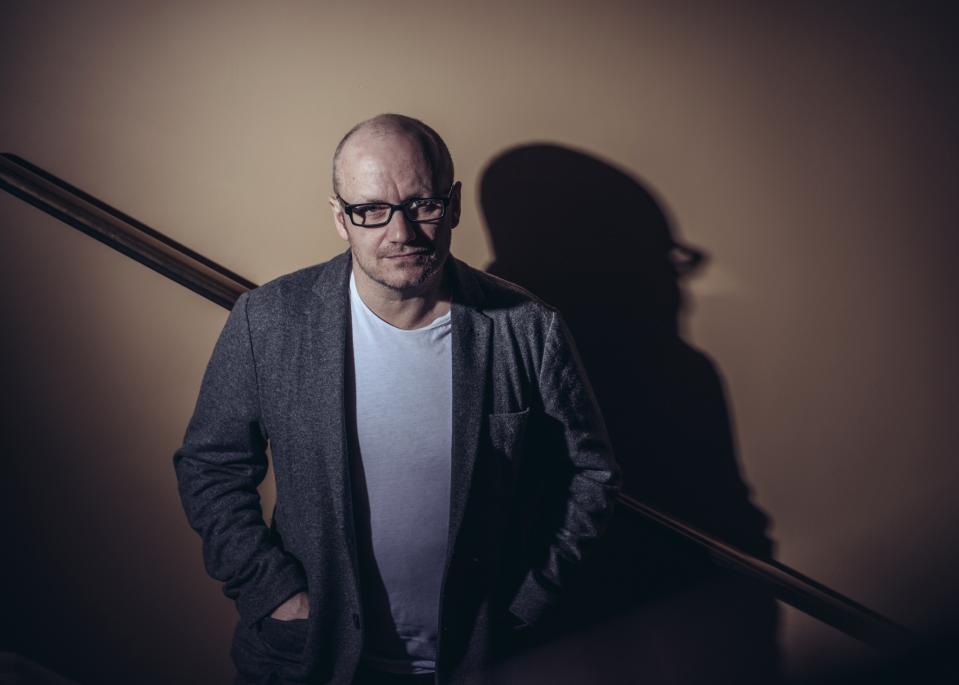
The Little Stranger has a lot more to offer than your average horror fare. It tells the story of Doctor Faraday (Domhnall Gleeson), a country doctor who finds himself drawn back to the spooky Hundreds Hall where his mother once served as a housemaid. Caroline Ayes (Ruth Wilson) has returned to the crumbling family estate to take care of her brother Roddy (Will Poulter), but something is haunting the family – including the matriarch (Charlotte Rampling) – causing their world to collapse around them.
It’s a thoughtful piece of grown-up cinema that tackles class divide, gender politics, and PTSD in post-war Britain, that will hopefully find its audience here in the UK where distributor Pathe has been careful to avoid labelling it as a horror.
We spoke with Abrahamson about his reasons for choosing the film, his thoughts on casting an able-bodied actor in a disabled role, and the meaning behind that cryptic title: The Little Stranger.
Yahoo Movies UK: Going back to your success with Room, that must have been a crazy time for you – what sort of projects were you being offered, and how did The Little Stranger rise to the top?
Lenny Abrahamson: It was a crazy time. You spend a lot of time as a filmmaker building up a body of work, and you have to push to get things made, to make sure people know who you are, or try to. And so when that gets flipped on its head, and people are trying to make things with you, asking you ‘What would you like to make? Yes, we’ll make whatever you’d like to make’ – yes, there’s some of that, and then people sending fancy, in inverted quotes, projects it was… I was also really tired!
Because I’d been on the road with Room and the campaign for about six months, and I was exhausted with myself. I’d spent that amount of time talking doing this… it does a weird thing to your head. You can do it for a few days or a few weeks, but when it goes into months, it’s just so odd.
I’m old enough and experienced enough to know that it would be very easy to have your perspective warped a little bit by that experience, you know? And among other dangers, there’s the danger of thinking ‘that’s what success is, that’s what excitement is, I must do something to create this situation again, immediately.’
By pursuing the prestige pictures?
By pursuing the prestige pictures, exactly. Finding the one that’s got all of that, you know, the lights are flashing for awards and things. But I don’t think… I know myself well enough to have never have been seriously tempted that kind of strategic plan approach to a career.
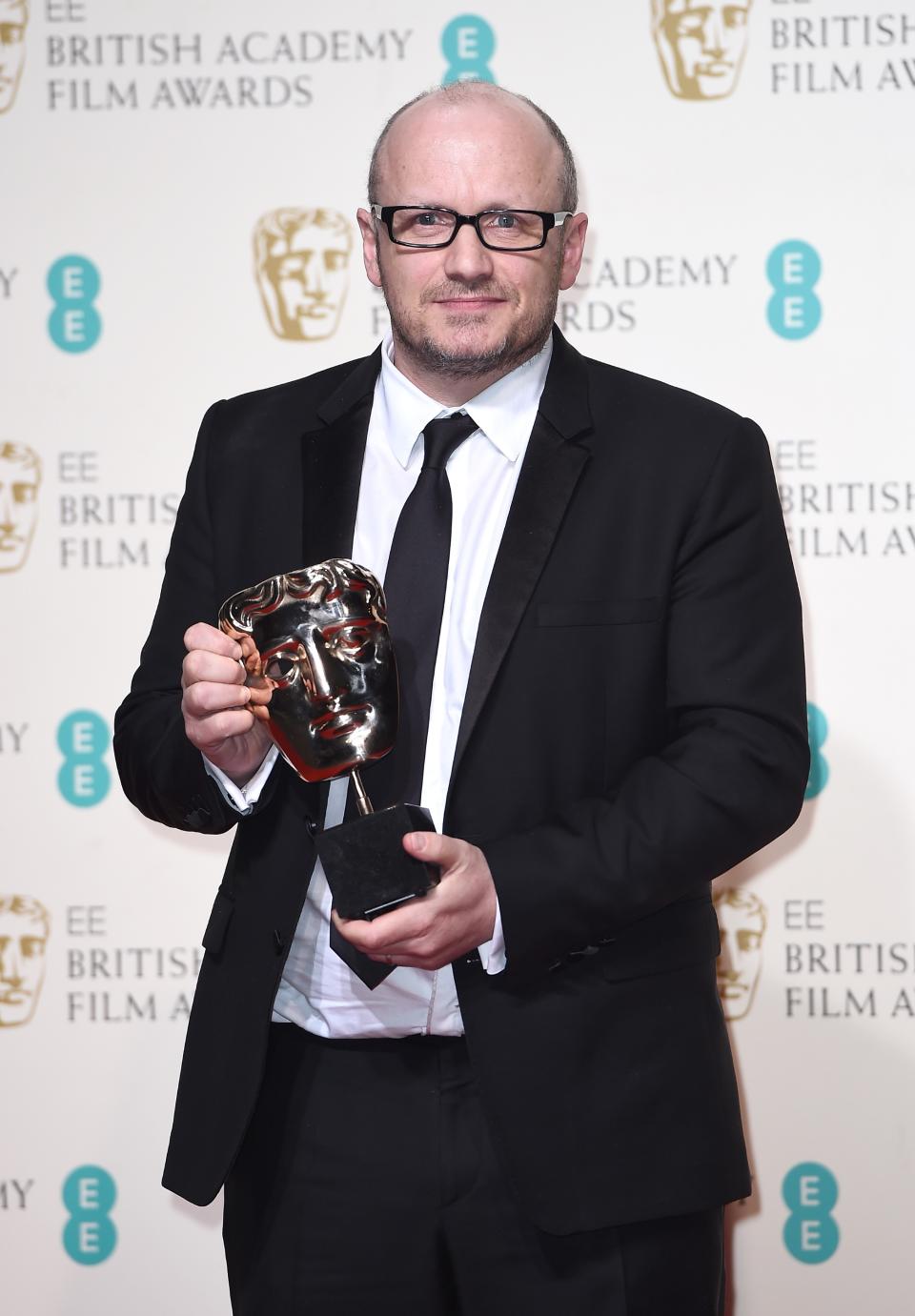
So I took my time. I did a little bit of stuff that I was doing. I had a project that I helped with, and a television thing, and I just stuck to thinking hard about the slate that I was already working on. And the plan was, before I made Room, that the next film would be The Little Stranger.
I had been working on The Little Stranger from even before Frank. So it was make it now or never make it, really. And probably in a kind of… if you were able to design your career on a kind of project planning bit of software, I might have not done another adaptation immediately after Room, but that’s not how things work, and I’m passionate, was passionate about this story.
So for me it was helpful because anybody who didn’t really know me or people who maybe would be saying ‘grab it while you can’, for them it was quite an odd choice, and I like that. They might say ‘but that’s a very unusual film that doesn’t fit any particular categories, it’s hard to see it as an awards contender, so maybe you should think of something else?’ It’s quite nice to go ‘no, I’m going to do this’.
It made me feel like myself again.
It almost became the reason to do it…
Exactly. Because it was the decision not to take.
Was there something in the book, or a moment in pre-production that really crystallised in your mind ‘I know how to do this’?
The only other time was reading Room, where I’ve read a novel and very, very quickly thought ‘oh god, I kinda have a hold on this’. And actually The Little Stranger proved to be quite slippery in the end because it’s such a complicated novel, and trying to find the best screen version was not straightforward. But I do remember that within 30 pages of reading it I could see it. I really could see it, and I really thought ‘god, I would love to do this’.
And it’s the first book I read where I thought about an adaptation. I can remember reading it at home and then immediately getting back on to the office where it had been sent to me from and saying ‘I’m really, really interested in this’.
Was it any particular aspect that appealed to you? The supernatural, the social commentary?
It was all of it. Because I didn’t know anything about the book when I read it, it was sent as a pre-publication copy with no cover, so it was just a big pdf, and I started reading it, and I knew nothing about where it was going. Therefore it did its work on me in a really pure way, so by the time anything supernatural crept in, I was already completely familiar with the world that Sarah had created. I was really captivated by it, I could really see Faraday and I was fascinated by him.
I was beginning to see the contours of him, psychologically, so that when the resonances with the supernatural things that were happening had started, I was just so excited by the moves that Sarah was making, and marrying that to the understanding that she had of British social history and class, and the social shifts after the war, all of that just felt like this really rich bundle of ideas that I could dive into.
But actually what makes you – for me anyway – as a filmmaker really want to do something was how compelled I was by the Faraday character, ultimately. And ultimately how moved by him I was. Which is not everybody’s experience of the book, and it’s probably not everyone’s experience of the film either, but I find Faraday ultimately a profoundly tragic character.
Is the supernatural stuff something that you’ve always been interested in?
No. I don’t think, had I known that it was a ghost story, I might not have even started reading the book. Which is why it’s hard with the marketing thing, because I prefer people to go in and not know anything, but that’s like everybody would prefer that, and that’s not the world we live in. People make these choices and they have to know about the project, the films they’re choosing between, but no I don’t believe in ghosts at all. But I do think that they operate or ghost stories operate in a metaphorical space that’s really, really rich.
Put it like this: everybody sort of haunts their own life. The bit that’s present in every experience you have, is you. And whatever it is that you carry, and some of it won’t be great, it flows out into… you behave in ways you don’t even know you behave, they damage or change or kind of block aspects of your experience, so those ‘ghosts’, in that sense, in the Ibsen sense… they’re there all the time.
Acclaimed ghost story author Henry James once said: “The good, the really effective and heart-shaking ghost-stories . . . appeared all to have been told”. Do you agree, and what in your mind, are the great ghost stories – in film or print?
The Turning of the Screw being the greatest of all. So this can’t compete with that, but it doesn’t try to. It’s all a sort of sleight of hand to get you to look at Faraday, that’s all this film is.
It’s a sort of reducing and reducing of the point of view until you’re just looking at him, and it tells you, in the middle of the film, it tells you what’s happening. I’m sort of amazed because people say ‘we’ve been debating it’ and I think that’s great, by all means do, but actually the ‘what’s happening’ is not a mystery in this film really. It’s to feel the meaning of that in his life and what it does to him, so it goes back to the stuff that i’ve always done which is these odd elliptical character studies.
I didn’t set out to do this. It’s not what I said at the beginning, it’s just what I seem to have done.
Every time I make a film I go ‘OK, with this one I’m going to do this extraordinary Sarah Waters novel’, it’s ultimately because i’m drawn to that aspect of it.
So that’s the meaning behind the title: Faraday is The Little Stranger?
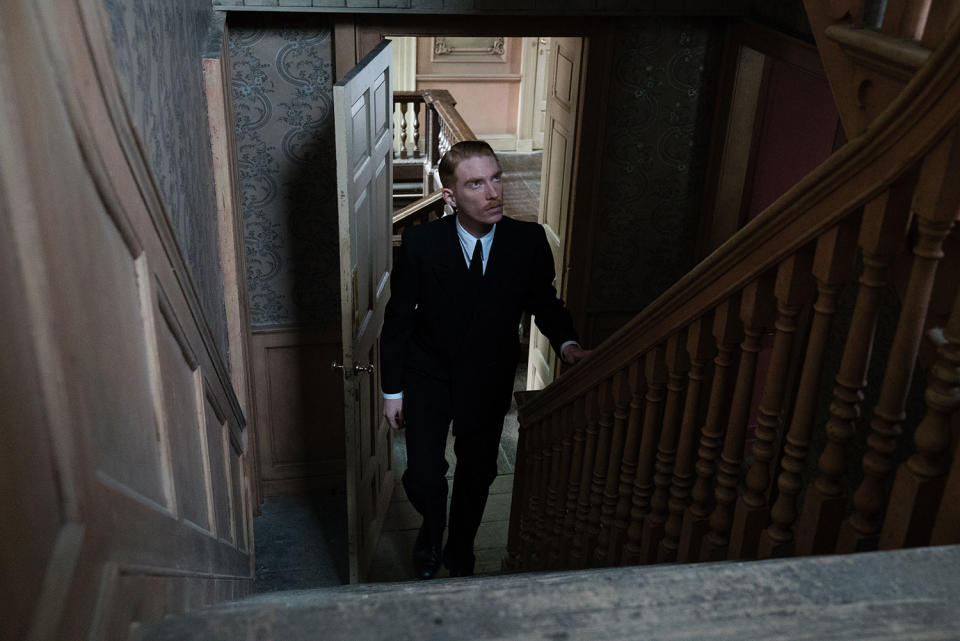
Yes. That’s the point we’re boiling down to, and that there is in all of us a kind of a ghost self in that sense.
The cast are fantastic, it includes four of my favourite actors working right now…
Plus the lovely Liv Hill, the new one, she’s just magnificent.
Of course. But Will Poulter, I thought he was fantastic, and maybe a left field choice for this part, the upper crust gentleman with PTSD, he does a fantastic job. But there’s been a lot of discussion of late about the ethics of able-bodied actors playing disabled characters. Did you ever consider that for the part of Rod?
No. In the same way, I think that acting is… you have to be careful how you talk about this because… there’s a bit of a debate at the moment about casting straight actors to play gay or whatever, but I wouldn’t want to say that gay actors couldn’t play straight. What would it mean to say that?
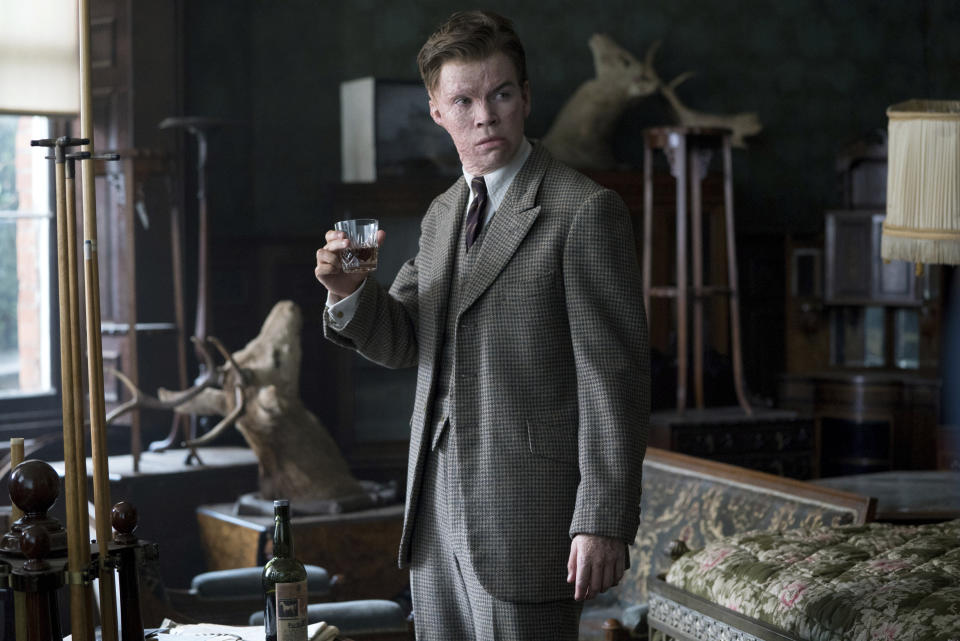
Acting is the embodying of somebody else. Nobody’s experience ever overlaps. What’s interesting about acting is not the fact that the person is the thing, it’s that the person is able to present the thing in a really interesting way.
Crudely, I don’t have to find a priest to play a priest. So no, I have no qualms about it that regard. I think there are circumstances where yes, you can. In the same sense that I wouldn’t… the idea of getting someone to play across race, would be appalling. But that’s entirely different to this.
Of course, and I’m not trying to elicit a headline or soundbite from you on this, I just wanted to hear your thoughts on the matter. Everyone is always striving for more diversity on screen and behind the camera, and I think if you can at least do what you can, that’s great, but it should work on a case by case basis.
It does, and there are other projects that i’ve got that are coming up which most definitely are extremely diverse, in different ways actually. One in terms of gender, one in terms of race, and it is important.
It’s also important in how you crew and all that stuff, but there aren’t very many Will Poulters, you know? Somebody who can play a complex a part as that.
I think the reason that I thought Will was so right for it… I don’t know if you’ve met him, but he’s a really… he holds himself to a very high standard, as a human being. He’s really lovely to other people, he is really… he’s totally aware of the danger of being well-known and allowing that to make you blase or arrogant. He’s holds himself to a high standard.
And Roddy is exactly that. Roddy is attempting, while in fact being this terribly traumatised boy, he’s attempting to fulfil the role of the competent authoritative male, and it’s so painful to watch.
I thought Will really gets that, and he gets the vulnerability underneath that, that facade.
The Little Stranger is in UK cinemas from Friday, 21 September.
Read more
New Bond 25 director announced
Watch exclusive new Johnny English 3 clip
Mark Wahlberg’s 10 best films


